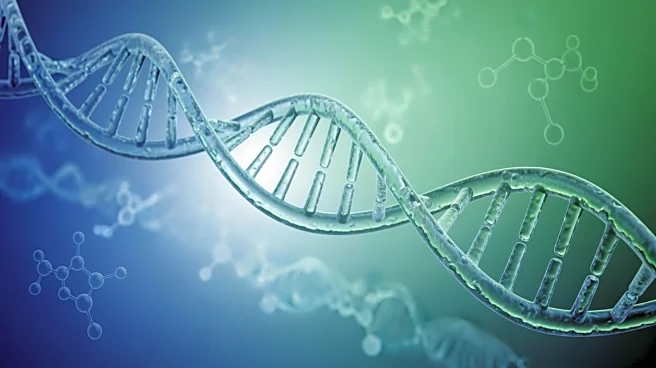What's Happening?
A recent study published in Nature highlights the development of an ultra-mild bisulfite sequencing (UMBS) method that significantly improves the detection of 5-methylcytosine in DNA samples with low input. The UMBS method offers several advantages over
existing bisulfite sequencing techniques, including reduced DNA damage and increased conversion efficiency. The study outlines key differences between UMBS and previous methods, such as the inclusion of a DNA protection buffer and a gentler pre-denaturation process. These improvements allow for more accurate methylation analysis, which is crucial for understanding epigenetic modifications in various biological contexts.
Why It's Important?
The advancement in DNA methylation detection through the UMBS method has significant implications for epigenetic research and clinical diagnostics. Accurate methylation analysis is essential for studying gene regulation, cancer development, and other diseases linked to epigenetic changes. By minimizing DNA damage and enhancing conversion efficiency, the UMBS method provides researchers with a more reliable tool for investigating these complex biological processes. This could lead to improved diagnostic techniques and therapeutic strategies, benefiting both scientific research and healthcare industries.
What's Next?
The study suggests that the UMBS method could be integrated into existing workflows for DNA methylation analysis, potentially replacing older techniques that are less efficient. Researchers and laboratories may begin adopting this method to enhance the accuracy of their epigenetic studies. Additionally, further research could explore the application of UMBS in other areas of genomics, such as personalized medicine and biomarker discovery, expanding its impact beyond current applications.
Beyond the Headlines
The development of the UMBS method also raises ethical considerations regarding the use of advanced genomic technologies. As DNA methylation analysis becomes more precise, questions about privacy and data security in genetic research may arise. Ensuring ethical standards and regulations are in place will be crucial as these technologies continue to evolve.

















